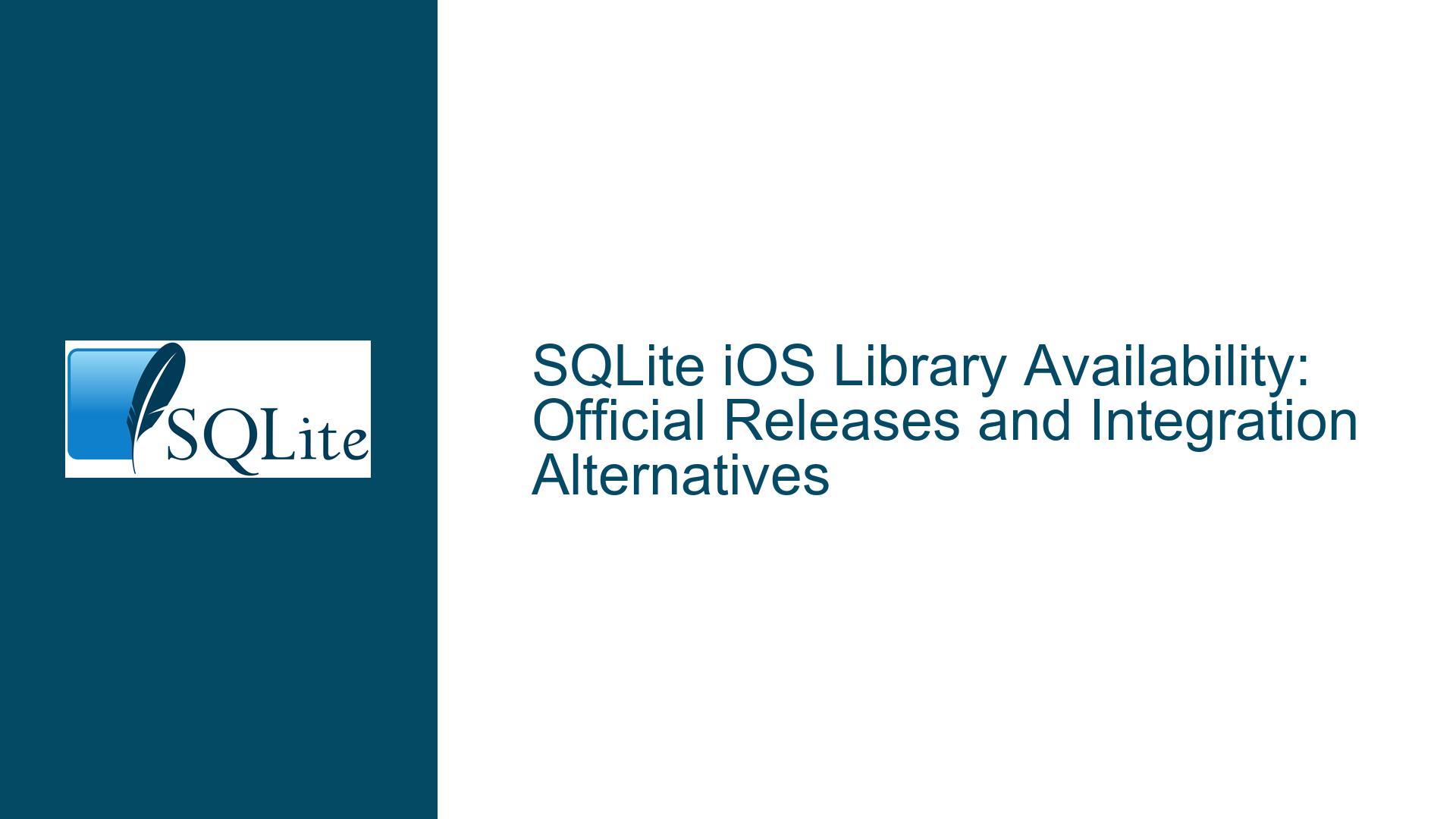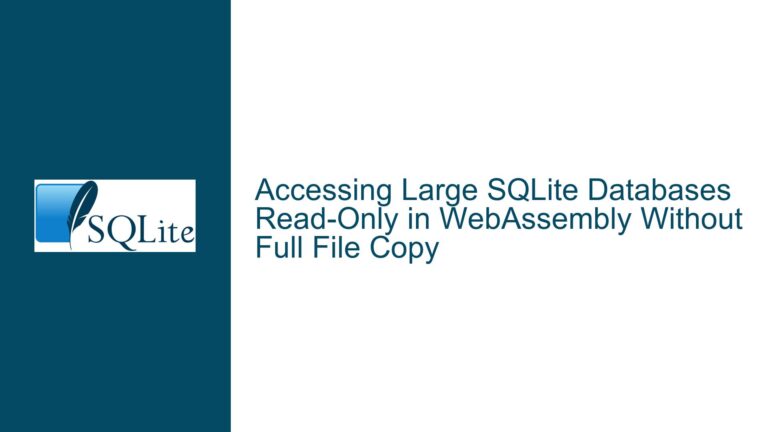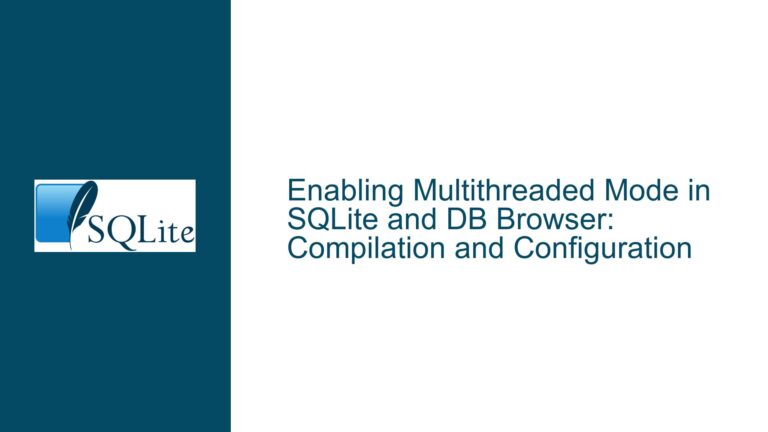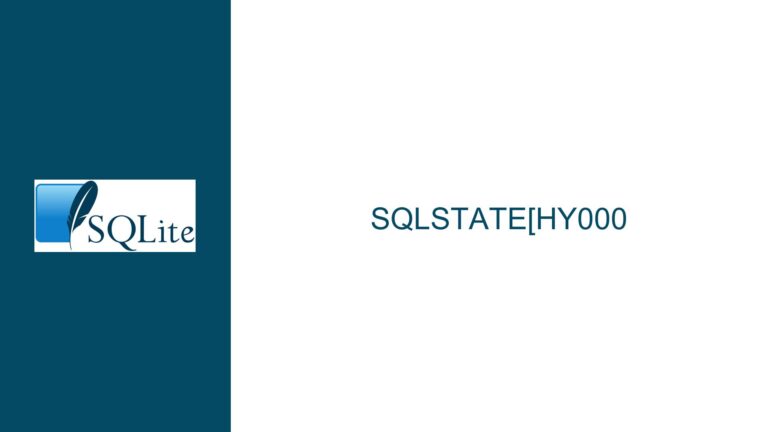SQLite iOS Library Availability: Official Releases and Integration Alternatives
Understanding SQLite’s iOS Library Distribution Landscape
SQLite’s design as a lightweight, embeddable database engine means it is often integrated directly into applications as source code or precompiled binaries. However, developers targeting iOS frequently encounter ambiguity around whether official prebuilt static or dynamic libraries for iOS exist, given the absence of iOS-specific binaries on SQLite’s official distribution channels. This guide dissects the underlying reasons for this absence, explores the technical nuances of SQLite’s platform support, and provides actionable solutions for integrating SQLite into iOS projects.
Core Reasons for Missing iOS-Specific Precompiled Binaries
SQLite’s official distribution strategy prioritizes platform-agnostic source code over platform-specific binaries for most environments. The SQLite amalgamation—a single C file and header—is the recommended form of distribution, enabling developers to compile the library directly into their projects. For iOS, this approach is not only feasible but often preferable due to Apple’s strict control over dynamic linking and app binary size optimization.
The absence of iOS-specific precompiled binaries (static .a or dynamic .dylib/.framework files) on SQLite’s official website stems from three factors:
Licensing and Distribution Philosophy: SQLite’s public domain dedication allows unrestricted use, but the project maintains a minimalist distribution model. Precompiled binaries are provided only for platforms where source compilation is impractical (e.g., command-line shells for Windows/macOS). iOS apps typically require code signing and architecture-specific builds (arm64, armv7), which are better handled during the app’s own compilation process.
iOS Platform Constraints: iOS imposes strict sandboxing and dynamic linking limitations. While dynamic libraries can be embedded, Apple’s App Store guidelines discourage their use unless necessary, favoring static linking to reduce attack surfaces and simplify dependency management. SQLite’s amalgamation source is optimized for static linking, aligning with iOS best practices.
Toolchain Integration: Xcode, Apple’s IDE, natively supports compiling C code, making it straightforward to include SQLite’s source directly. Third-party package managers (CocoaPods, Swift Package Manager) further abstract this process, reducing demand for prebuilt iOS binaries.
Strategies for Integrating SQLite into iOS Projects
Using the SQLite Amalgamation Source
The most reliable method to integrate SQLite into an iOS project is to use the amalgamation source. This involves:
Downloading the Amalgamation: Obtain the latest sqlite-amalgamation-.zip* from SQLite’s download page. This archive contains sqlite3.c (the combined source) and sqlite3.h (the header).
Adding Source to Xcode: Drag sqlite3.c and sqlite3.h into the Xcode project. Ensure the files are added to the target’s Compile Sources and Headers build phases.
Configuring Architectures: iOS requires binaries to support multiple architectures (arm64, x86_64 for simulators). Xcode automatically handles this when compiling from source, but verify that the Build Settings for the target include Standard Architectures (arm64, arm64e).
Enabling Thread Safety: SQLite’s default configuration is thread-safe, but explicitly enable it by adding
-DSQLITE_THREADSAFE=1to Other C Flags in Xcode’s build settings.
Leveraging System SQLite on iOS
iOS includes a system-provided SQLite library (libsqlite3.dylib), but its version is tied to the OS and may lag behind the latest SQLite releases. To use it:
Link Against libsqlite3.dylib: In Xcode, navigate to the target’s General tab, scroll to Frameworks and Libraries, and click +. Search for libsqlite3.tbd and add it.
Include Headers: Use
#import <sqlite3.h>in code. Note that system headers may lack newer SQLite features (e.g., JSON1 extension).
Third-Package Managers
For projects using dependency managers, consider these options:
CocoaPods: The SQLite.swift pod wraps SQLite’s amalgamation source and provides a Swift-friendly API. Add
pod 'SQLite.swift'to the Podfile and runpod install.Swift Package Manager (SPM): Add a package dependency to https://github.com/stephencelis/SQLite.swift.git in Xcode’s Swift Packages tab.
Manual Prebuilt Frameworks: While not officially provided, community-maintained static libraries (e.g., sqlite3-ios) can be found on GitHub. Verify their provenance and compatibility with the target iOS version.
Compiling a Custom Static Library
For advanced control over SQLite’s compile-time options:
Create a Static Library Target: In Xcode, create a new Static Library target. Add sqlite3.c and sqlite3.h to this target.
Configure Preprocessor Macros: Define macros like
SQLITE_ENABLE_FTS5(for full-text search) orSQLITE_ENABLE_JSON1in the target’s build settings.Export Headers: Ensure sqlite3.h is marked as Public in the Headers build phase.
Link the Library: Add the static library to the application target’s Link Binary With Libraries build phase.
Addressing Common Pitfalls
- Bitcode Support: If enabling Bitcode, ensure SQLite is compiled with
-fembed-bitcodeby adding it to Other C Flags. - Header Conflicts: Avoid naming conflicts with system headers by placing custom SQLite builds in a dedicated directory.
- Extension Activation: Extensions like FTS5 require compile-time flags. Recompile SQLite with
-DSQLITE_ENABLE_FTS5if errors about missing virtual tables occur.
Final Recommendations and Best Practices
For most iOS projects, integrating SQLite via the amalgamation source or a reputable Swift package (e.g., SQLite.swift) offers the best balance between control and convenience. Avoid relying on the system SQLite library unless targeting legacy features. Regularly update the amalgamation source to incorporate performance improvements and security patches. For enterprise applications requiring custom SQLite builds, establish a reproducible compilation pipeline using Xcode Cloud or similar CI/CD tools to automate architecture-specific builds. By adhering to these practices, developers can mitigate the absence of official iOS binaries while maintaining robust SQLite integration.






